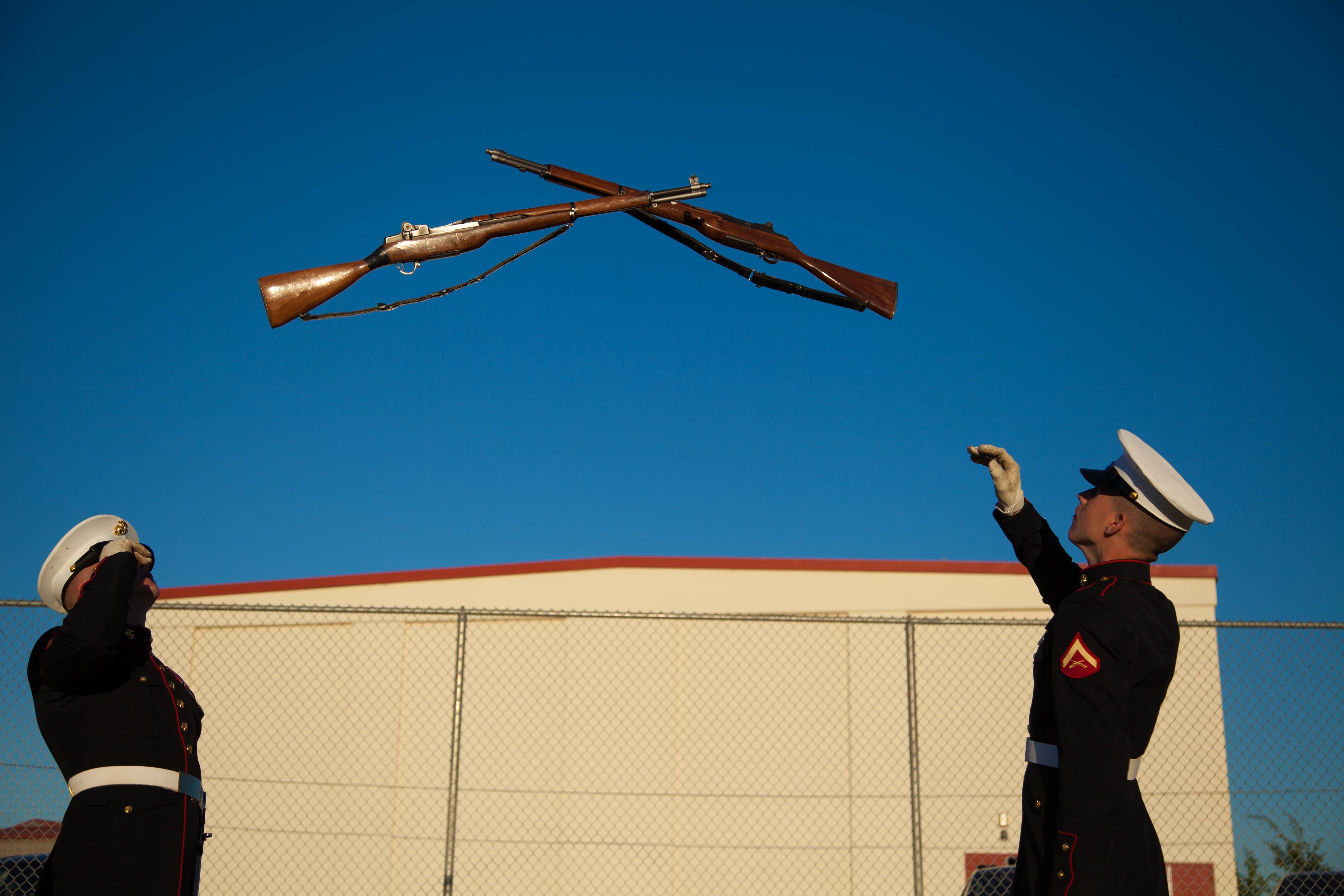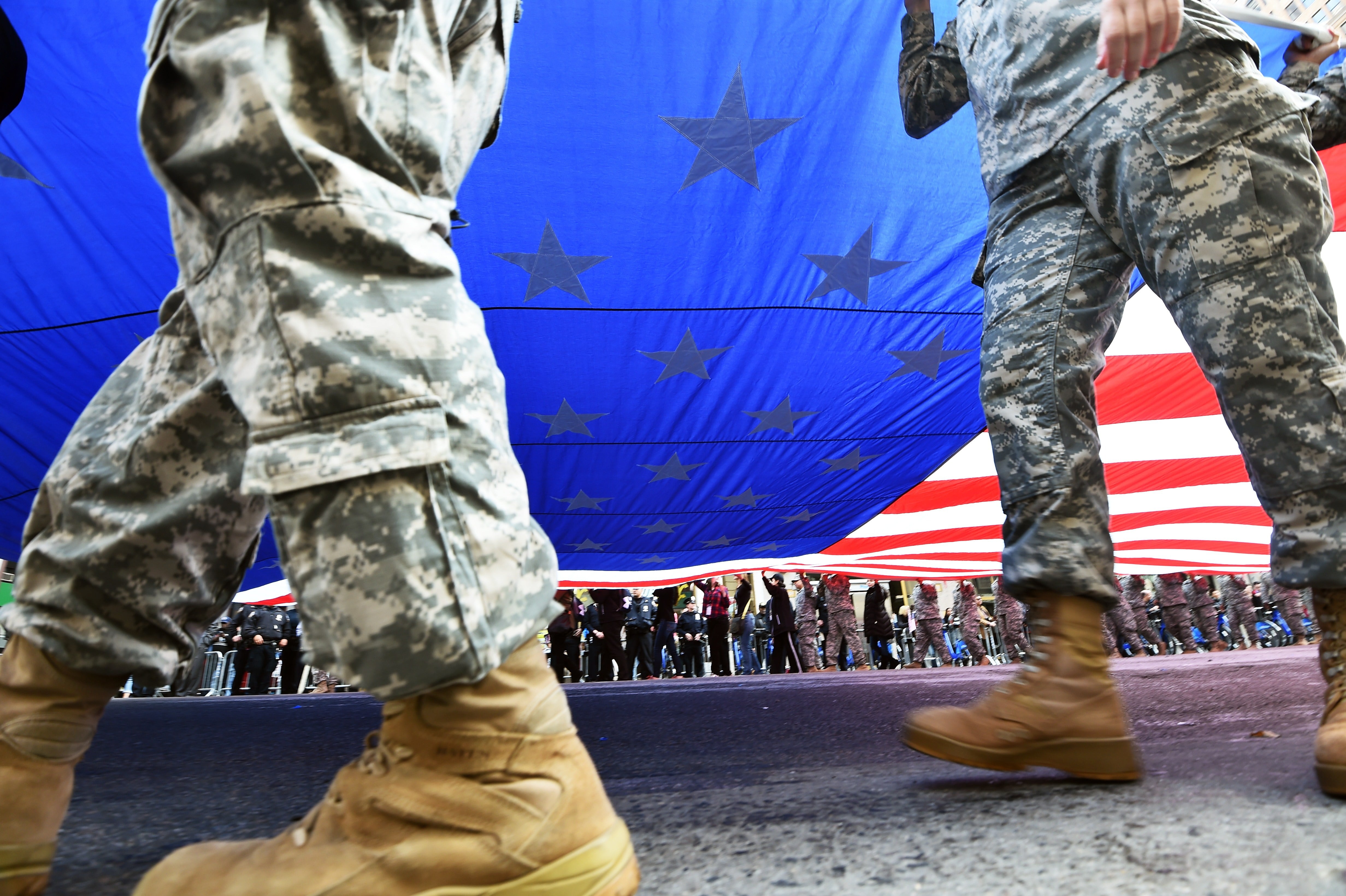Battle lines have already been drawn on veterans issues for the 2016 election, and both sides are preparing for the long campaign ahead.
On one side sits Concerned Veterans for America, a favorite of conservative lawmakers who have been pushing for expanded private care options for veterans and an overhaul of the Veterans Affairs Department bureaucracy.
On the other is VoteVets.org, the left-leaning political activist group that has accused Republicans of working to privatize veterans health care regardless of the dire consequences.
Both groups already are lobbying veterans organizations on the issue, even with the major party presidential candidates still in flux. Officials with both groups see VA reform as a key issue in that race as well as in a number of local congressional contests, especially given the lingering scandals surrounding the department.
"This is a real opportunity to see where the veterans groups are, and whether they're willing to stand up and tell the public what they stand for," said Jon Soltz, co-founder and chairman of VoteVets.
That's the only point the two groups agree on.

VoteVets recently launched an effort to expose CVA as an advocacy arm of the far right, funded largely by the Koch brothers, well-known conservative activists.
CVA officials have declined to respond publicly about where their group's funding comes from, other than to say "private donors," similar to other organizations working on veterans issues.
"VoteVets is honest about being America's largest progressive veterans group, and supporting progressive policies," group officials said in a release. "CVA should be honest about representing the people who support dismantling programs that care for our elderly, our poverty-stricken, our children, and even our veterans."
CVA officials say those attacks are off-base attempts to distract from real reform efforts. While they blast VoteVets officials as partisan hacks, they bill themselves as nonpartisan advocates with a history of reaching out to both parties.
They've been searingly critical of President Obama and the current VA administration, and are often cited by Republicans on Capitol Hill in arguments against department positions. But they also say they've been meeting with Democrats interested in reform efforts in recent months, in hopes of building a broader coalition to take action.
In February, CVA officials released a four-month task force report on improving VA health care, including splitting off insurance functions from other veterans health services and making VA hospitals compete with private care providers for patients.
Critics, including a number of prominent veterans groups, labeled that privatization a "third rail" in veterans politics; Pete Hegseth, CVA's chief executive officer, calls it choice.
"The era of choice is coming," Hegseth said. "Veterans groups used to be able to say 'privatization' whenever that was discussed in the past. But that panic button doesn't exist anymore. This election is going to be a referendum on whether you're pro-reform or status quo."
An April Rasmussen Poll found that about two-thirds of likely voters say they're following VA issues closely, but only about one-third have a favorable view of the department's operations. Hegseth said internal CVA polling has shown the issue rising in importance, and officials hope to use that momentum to advance their reform plans.
He expects legislation related to the changes to be introduced this fall, and the group has been meeting privately with other influencers on veterans issues to fight what they see as misperceptions of the plan.
"This is not about vouchers or privatizing the system," he said. "This is about empowering veterans to get the best care they can, without dismantling the VA."
Soltz calls it indicative of a larger conservative effort to water down and outsource any government health care offerings. He promises to take that case to the veterans groups in coming months, and challenge them to push back against the effort.
Even though veterans issues have been largely relegated to minor campaign talking points in recent presidential elections, major party candidates have been loathe to upset the big veteran service organizations for fear of negative publicity.
In the 2012 campaign, Republican candidate Mitt Romney had to quickly back off a suggestion to offer vouchers to veterans in lieu of plussing up VA operations, after backlash from several prominent veterans advocates.
But that was before the 2014 wait times scandals that forced the resignation of former VA Secretary Eric Shinseki, and a subsequent year of sparring over new outside care options between department officials and congressional lawmakers from both parties.
"We're seeing a maturity on discussions of these issues," Hegseth said. "There are new pressures and new realities in 2016. And there's an expectation now that candidates will be able to speak on a deeper level on this. We dare someone to take a position against choice for veterans."
CVA will raise the issues before voters during its "Defend Freedom" tour through the rest of the summer. That effort already has included a town hall with presidential hopeful Marco Rubio in New Hampshire last month.
Meanwhile, VoteVets already has endorsed 13 candidates for the 2016 cycle, and promises to highlight their positions on responsible VA reform for months to come.
Leo covers Congress, Veterans Affairs and the White House for Military Times. He has covered Washington, D.C. since 2004, focusing on military personnel and veterans policies. His work has earned numerous honors, including a 2009 Polk award, a 2010 National Headliner Award, the IAVA Leadership in Journalism award and the VFW News Media award.



